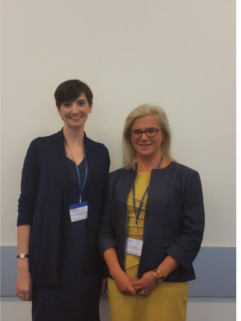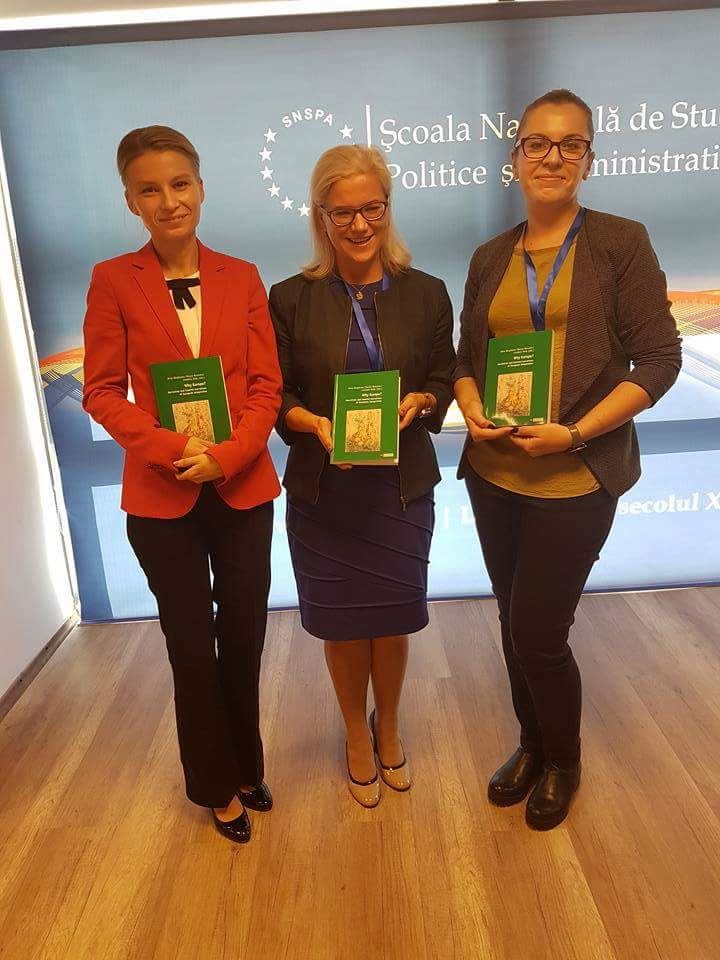ECREA’s Communication and the European Public Sphere Temporary Working Group (CEPS TWG) organized a series of events in autumn, taking place in Krakow and Bucharest. Under the umbrella of the University Association for Contemporary European Studies (UACES) Annual Conference – Exchanging Ideas on Europe (4–6 September 2017), the CEPS TWG organized two panels in Krakow, focusing on EU responses to the Crises in the European Public Sphere, chaired by Prof. Jozef Niznik and Prof. Alina Bârgăoanu. The presentations featured themes such as strategic communications from and towards the EU, Brexit, and the defence union, but also included a debate on the conceptualization of the European Public Sphere, Europeanisation and crises to name a few. Dr Malgorzata Winiarska-Brodowska, vice-chair of the CEPS TWG, conducted a third panel under the title Reporting Europe, Reporting Migrations. It addressed the nexus between national identity and public discourse on EU free movement of persons, the refugee crises and EU news coverage during British elections.
On 7-8th September, the CEPS TWG seminar entitled The development potential of the European Public Sphere took place in Krakow. The event was hosted by the Institute of Journalism, Media and Social Communication of the Jagiellonian University and gathered scholars from Germany, Denmark, Tunisia, Romania, Bulgaria and Poland. The seminar was opened by a lecture The European Public Sphere in Question: Current Dilemmas given by Prof. Teresa Sasinska-Klas. Succeeding sessions moderated by Dr Malgorzata Winiarska-Brodowska dealt with such topics as: Europeanisation of public spheres in times of crisis, Europeanisation and peripheralisation of the public spheres as well as the EU Communication Strategy. The seminar provided a forum for discussions on a number of issues related to European communication, ranging from Brexit and migration to security and defence in the EU27. The seminar participants considered also the role of social media, quality of information and communication trends in Europe such as fragmentation and polarization. The papers presented various theoretical approaches, interesting empirical case studies, comparative analyses and critical reflection on the situation in Europe. As a result of debates in Krakow a special book issue will be published soon.


Photo 1: Malgorzata Winiarska-Brodowska, vice-chair of the CEPS TWG (left) and Alina Bârgăoanu, chair of the CEPS TWG (right), Krakow
Photo 2: From left to right: Loredana Radu , Alina Bârgăoanu, and Raluca Buturoiu, Bucharest
On 5th October, the CEPS TWG had a dedicated panel in the framework of the Qualitative Research in Communication Conference, hosted by the National University of Political Sciences and Public Administration in Bucharest. Centred around the topic of narratives and counter-narratives of European integration, the panel covered a wide range of subjects. Strategies of legitimization, youth identity and post-Brexit identity in Romania, as well as the financial crisis, information sharing discourses and narratives on reforming Europe were heatedly debated among scholars and professionals, moderated by Prof. Alina Bârgăoanu. One of the highlights was the assessment of the campaign Romanians adopt Remainians launched in the aftermath of the Brexit referendum. On the margins of this event, the book “Why Europe? Narratives and counter-narratives of European integration” edited by Alina Bârgăoanu, Raluca Buturoiu and Loredana Radu was launched.
If you find these topics interesting and you would like to contribute to the CEPS activities please join us or read more about the TWG’s objectives here.
Report by Eveline Marasoiu, National University of Political Science and Public Administration, Romania and Malgorzata Winiarska-Brodowska, Jagiellonian University, Poland; vice-chair of ECREA Communication and the European Public Sphere TWG
.